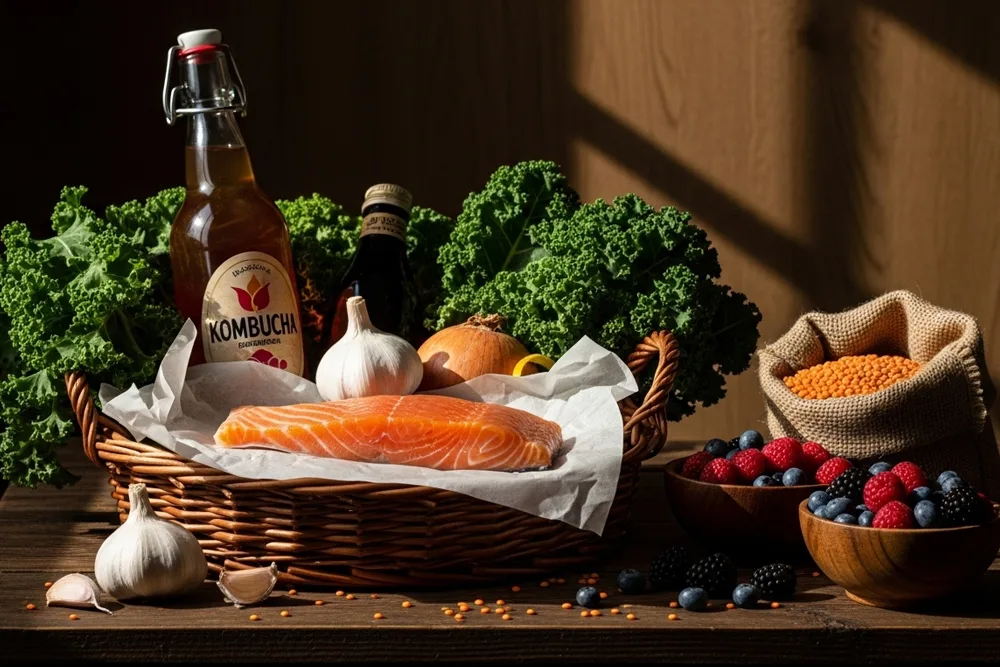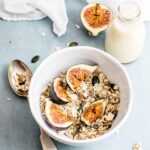Did you know that your gut holds the key to better health and overall well-being? You can thank the trillions of bacteria and microorganisms, collectively known as the gut microbiota, for their essential role in digestion. Supporting a healthy gut doesn’t just reduce digestive issues; it also plays an important part in regulating physical functions and keeping everything running smoothly. Unsurprisingly, your daily food choices greatly influence the health of your gut microbiome.
In this article, we’ll explore several popular foods that boost gut health and can easily be included in your everyday diet.
Why Is Gut Health Important?
A well-balanced gut microbiome helps to promote smooth digestion, boost immunity, regulate metabolism, and even influence mental well-being. On the other hand, an imbalanced gut can contribute to digestive issues, chronic inflammation, and a weakened immune response. That’s why including gut-friendly foods in your daily meals is essential for maintaining a healthy and resilient microbiome.
Top Foods for a Healthy Gut
Your gut health is closely connected to your overall wellness, including your immune system’s strength and ability to ward off illness. The following foods help nourish and support your gut microbiota, contributing to better health from the inside out.
1. Fermented Foods
Fermented foods are rich in probiotics—live beneficial bacteria that help restore and support a diverse gut microbiome. Including these foods in your diet can enhance digestion and overall gut health. Great options to try include:
- Yogurt (choose types with live and active cultures)
- Kefir (a cultured, fermented milk beverage)
- Sauerkraut
- Kimchi
- Tempeh
- Miso
- Kombucha
2. High-Fibre Foods
Fibre serves as nourishment for the good bacteria in your gut, encouraging their growth and diversity. Including a wide range of fibre-rich foods in your meals can significantly benefit your digestive health. Some excellent sources include:
- Nuts and seeds (such as almonds, chia seeds, and flaxseeds)
- Legumes (like lentils, chickpeas, black beans, and kidney beans)
- Vegetables (including broccoli, Brussels sprouts, artichokes, and asparagus)
- Fruits (such as berries, apples, pears, and avocados)
- Whole grains (like brown rice, quinoa, oats, and whole wheat bread)
3. Prebiotic Foods
Prebiotics are a form of dietary fibre that your body can’t digest, but your gut bacteria can. They serve as fuel for the beneficial microbes in your digestive system, helping them succeed. Adding gut-friendly foods to your diet can significantly improve your gut health. Great sources include:
- Oats
- Whole wheat
- Chicory root
- Asparagus
- Bananas
- Garlic
- Onions
4. Polyphenol-Rich Foods
Polyphenols are powerful plant-based antioxidants that support gut health by encouraging the growth of good bacteria and reducing harmful ones. Including polyphenol-rich foods in your meals can enhance both digestive and overall health. Consider these options:
- Berries (such as blueberries, raspberries, and strawberries)
- Green tea
- Dark chocolate
- Red wine (enjoyed in moderation)
- Olive oil
- Nuts and seeds
5. Lean Proteins
Lean proteins like chicken, fish, tofu, and legumes are not only easy on the digestive system but also help strengthen the gut lining. Including these in your diet supports digestion, helps prevent leaky gut syndrome, and contributes to overall gut health.
Incorporating Gut-Healthy Foods into Your Diet
Eating for gut health doesn’t have to be boring or complicated. With a little creativity and planning, it’s easy to include gut-friendly foods in your daily routine. Here are a few practical tips to help you get started:
- Start Your Day Straight: Kick off your morning with a breakfast that features yoghurt or kefir, both excellent sources of probiotics. Add a sprinkle of chia seeds or flaxseeds for an extra fibre boost.
- Smart Snacking: Swap out chips and sugary treats for a handful of nuts. They’re rich in fibre and help nourish your gut bacteria while keeping your energy levels steady.
- Fibre-Filled Meals: Incorporate whole grains, legumes, and beans into your lunch or dinner. Opt for dishes like dal tadka, sprouted moong, or grain-based salads to pack in fibre and flavour.
- Add Variety to Your Plate: Don’t stick to the same foods every day. Including a wide range of ingredients in your diet encourages diversity in your gut microbiome, which is key to better digestion and overall health.
Foods to Avoid or Limit for Better Gut Health
While incorporating gut-friendly foods is essential for maintaining a healthy microbiome, it’s just as important to be mindful of the foods that can disrupt it. Some dietary choices can negatively impact your gut health and lead to digestive discomfort:
- High-Sugar Foods: Excessive sugar from snacks, desserts, and sugary drinks can feed harmful bacteria and yeast in the gut, leading to an imbalance.
- Processed Foods: Packed with preservatives, additives, and unhealthy fats, processed foods can reduce the levels of beneficial bacteria in your digestive system.
- Unhealthy Fats: Trans fats and saturated fats, commonly found in fried foods and some animal products, may trigger inflammation and encourage the growth of harmful microbes.
Supporting your gut health is one of the most effective ways to improve your overall well-being. Making mindful food choices, prioritising fibre, fermented foods, polyphenols, lean proteins, and healthy fats, you give your gut the nutrition it needs to succeed. Remember, a diverse and balanced diet not only strengthens your digestive system but also supports immunity, mental clarity, and long-term stamina.
Start small, stay consistent, and let your gut guide you towards better health.












